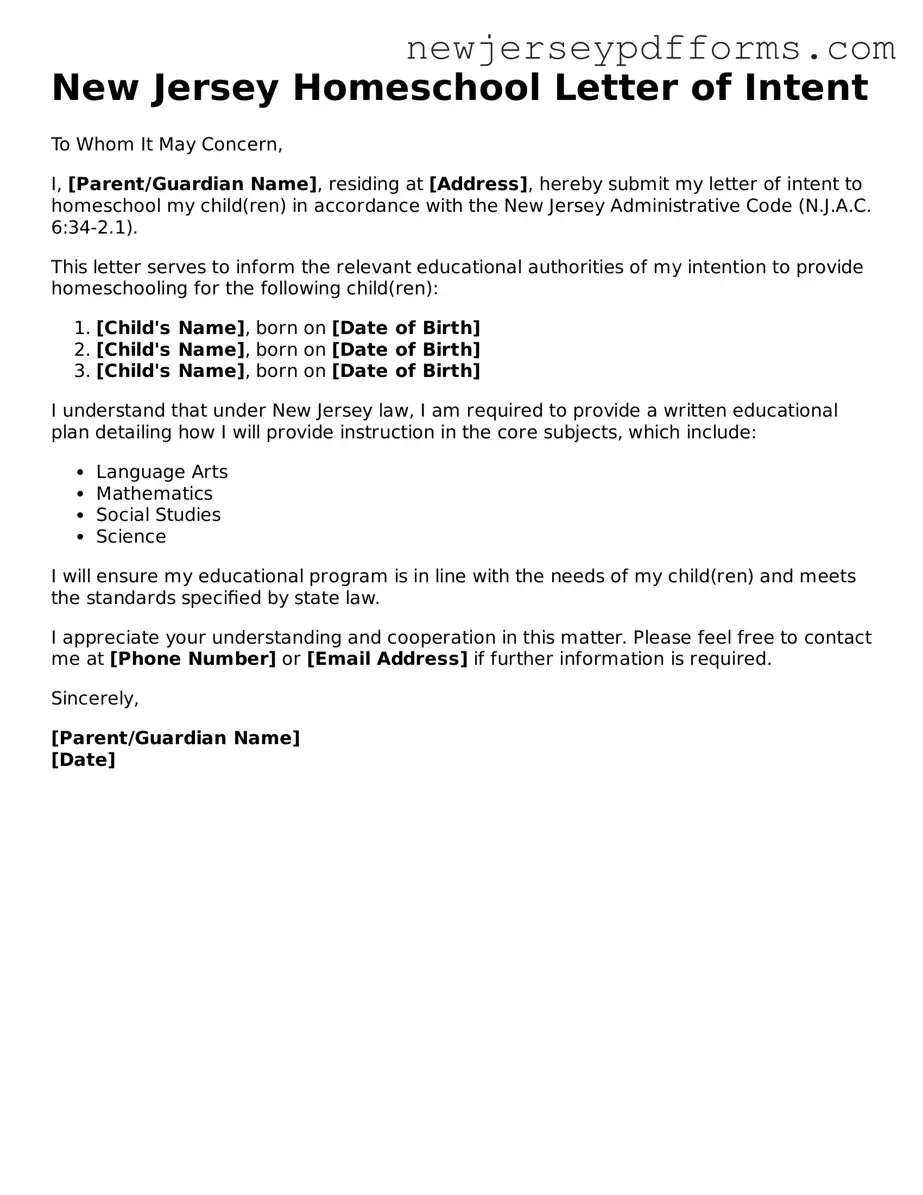Valid Homeschool Letter of Intent Document for the State of New Jersey
The New Jersey Homeschool Letter of Intent is a formal document that parents or guardians must submit to the local school district to notify them of their intention to homeschool their children. This essential form outlines the educational plans for the child and ensures compliance with state regulations. Understanding how to properly complete and submit this letter is crucial for a smooth homeschooling experience, so be sure to fill out the form by clicking the button below.
Open Editor Here

Valid Homeschool Letter of Intent Document for the State of New Jersey
Open Editor Here

Open Editor Here
or
Download Homeschool Letter of Intent PDF Form
Complete the form before time runs out
Edit your Homeschool Letter of Intent online and complete it quickly.